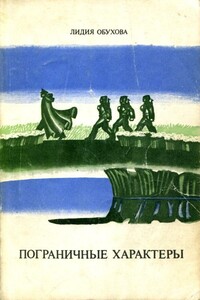The Boy Scouts In Russia - [22]
"That horn belongs only to a car used by a full general!" he said. "It must be von Hindenburg going, Fred! That flying machine brought important news!"
That had been evident to Fred almost from the first. He wondered mightily what was going to happen next. It seemed incredible that the Germans, knowing that he and Boris must soon be found, and that only patience was necessary if they were to be caught, would so quickly give up looking for them. And yet-Boris was right, of course. A general would not depart with such abundant evidence of haste and sudden decision unless some grave news had come through the air.
One question was soon settled. Scarcely had General von Hindenburg's car started, with the musical call of its horn clearing the way for it, when the search for the two scouts was renewed with as much vigor as had been shown before the coming of the aeroplane. And this time it was speedily successful. There was less din and confusion. Fred saw at once that some officer with a cool and level head had taken charge. The searchers now did the simple, obvious thing. They divided the grounds up into sections, and beat over each section thoroughly, with the result that a corporal and a private speedily came upon Boris and Fred, and, raising a sort of view halloo, dragged them out into the open, flashing their electric torches in their eyes.
"Here they are!" cried the corporal. "Herr Hauptmann, here they are!"
A captain came up quickly, and at the sight of Fred exclaimed sharply in his surprise.
"You're the boy I chose to help with the work in the house here!" he said. His face darkened. "He is a spy! Take him into the guard room and lock him up." He barely glanced at Boris. "Yes, that is the other. See that he is taken back to his quarters, corporal, and that a sentry remains constantly on guard."
"He is not a spy! If he is one, then so am I!" Boris broke out in a sharp protest. "He must be treated exactly like myself, or I must be used as he is!" throwing caution to the four winds.
"I am giving the orders here," said the German, coldly. "We have no desire to treat you harshly, Prince. You and your father have won the liking and respect of all your neighbors here, and it is a matter of regret that we must detain you at all. But you must be able to see for yourself that there is a great difference between an open enemy like yourself and one who pushes his way among us to get what information he can-"
"I beg your pardon, captain," Fred interrupted, thoroughly awake by this time to the danger in which he stood. "It was by your orders, and against my own protest, that I came into the house here at all."
"You will have an opportunity to explain all such matters at your trial," said the captain. "I can assure you that all will be done in a regular fashion, and that you will have every opportunity to defend yourself. Colonel Goldapp will doubtless arrange for a quick hearing since we shall not be here much longer."
Fred was quite cool and collected. He was frightened, to be sure, and he was brave enough to admit that to himself. He had good reason to be frightened. There is no offence more serious than espionage in time of war, and by every rule of war he was a spy. He had pretended to be a German, which he was not, and had been found within the German lines. It was true, of course, that he had been ordered into headquarters, but that was a trifling point, and, though he had raised it, Fred knew very well that no technicality would save him if the truth about him came out.
Boris understood all this, undoubtedly, quite as well as Fred or the German captain, but he was beside himself. He felt that Fred had run into this terrible danger because of him, in order to try to rescue him from an imprisonment that, though annoying, was by no means a serious matter.
"Take me instead of him!" he cried, forgetting that with every word he was really making Fred's case worse. "I-"
"I'll be all right," said Fred, with a cheerfulness he certainly did not feel. "All I want is a fair trial. If I get that, I'll be all right."
Unwillingly enough, Boris let himself be led away. Something in Fred's look, or in his voice, had warned him not to say anything more. So Fred saw him go, and was taken himself to the guard room, of which he was the only occupant save for the impassive Pomeranian sentry. Fred guessed, somehow, that German soldiers in war time did not often do things that caused them to be put under arrest. In the little he had seen of them he had come to understand what it was that made a German army so formidable.
He expected to be brought before the court early in the morning but, in fact, he was called out in less than an hour, and taken into the dining-room of the parsonage. Here, at the head of the table, sat an officer in a colonel's uniform; Colonel Goldapp, unquestionably, presiding over the court, which included four officers beside himself. Fred knew enough of the military law to understand what was going on. He saw a young lieutenant sitting with some papers before him. Another came and drew him aside.

В настоящем издании впервые полностью публикуются воспоминания барона Андрея Ивановича Дельвига (1813–1887), инженер-генерала, технического руководителя и организатора строительства многих крупных инженерных сооружений на территории Российской империи. Его воспоминания – это обстоятельный и непредвзятый рассказ о жизни русского общества, в основном столичного и провинциального служилого дворянства, в 1810–1870-х годах. Отечественная война, Заграничный поход, декабрьское восстание 1825 года вошли в жизнь А.

Документальные повести Л. Обуховой многоплановы: это и взволнованный рассказ о героизме советских пограничников, принявших на себя удар гитлеровцев в первый день войны на берегах Западного Буга, реки Прут, и авторские раздумья о природе самого подвига. С особой любовью и теплотой рассказано о молодых воинах границы, кому в наши дни выпала высокая честь стоять на страже рубежей своей Отчизны. Книга рассчитана на широкий круг читателей.

В книге рассказывается история главного героя, который сталкивается с различными проблемами и препятствиями на протяжении всего своего путешествия. По пути он встречает множество второстепенных персонажей, которые играют важные роли в истории. Благодаря опыту главного героя книга исследует такие темы, как любовь, потеря, надежда и стойкость. По мере того, как главный герой преодолевает свои трудности, он усваивает ценные уроки жизни и растет как личность.

В книге рассказывается история главного героя, который сталкивается с различными проблемами и препятствиями на протяжении всего своего путешествия. По пути он встречает множество второстепенных персонажей, которые играют важные роли в истории. Благодаря опыту главного героя книга исследует такие темы, как любовь, потеря, надежда и стойкость. По мере того, как главный герой преодолевает свои трудности, он усваивает ценные уроки жизни и растет как личность.

В книге рассказывается история главного героя, который сталкивается с различными проблемами и препятствиями на протяжении всего своего путешествия. По пути он встречает множество второстепенных персонажей, которые играют важные роли в истории. Благодаря опыту главного героя книга исследует такие темы, как любовь, потеря, надежда и стойкость. По мере того, как главный герой преодолевает свои трудности, он усваивает ценные уроки жизни и растет как личность.

«Мой ГУЛАГ» — это книжная серия видеопроекта Музея истории ГУЛАГа. В первую книгу вошли живые свидетельства переживших систему ГУЛАГа и массовые репрессии. Это воспоминания бывших узников советских лагерей (каторжан, узников исправительно-трудовых и особых лагерей), представителей депортированных народов, тех, кто родился в лагере и первые годы жизни провел в детском бараке или после ареста родителей был отправлен в детские дома «особого режима» и всю жизнь прожил с клеймом сына или дочери «врага народа». Видеопроект существует в музее с 2013 года.